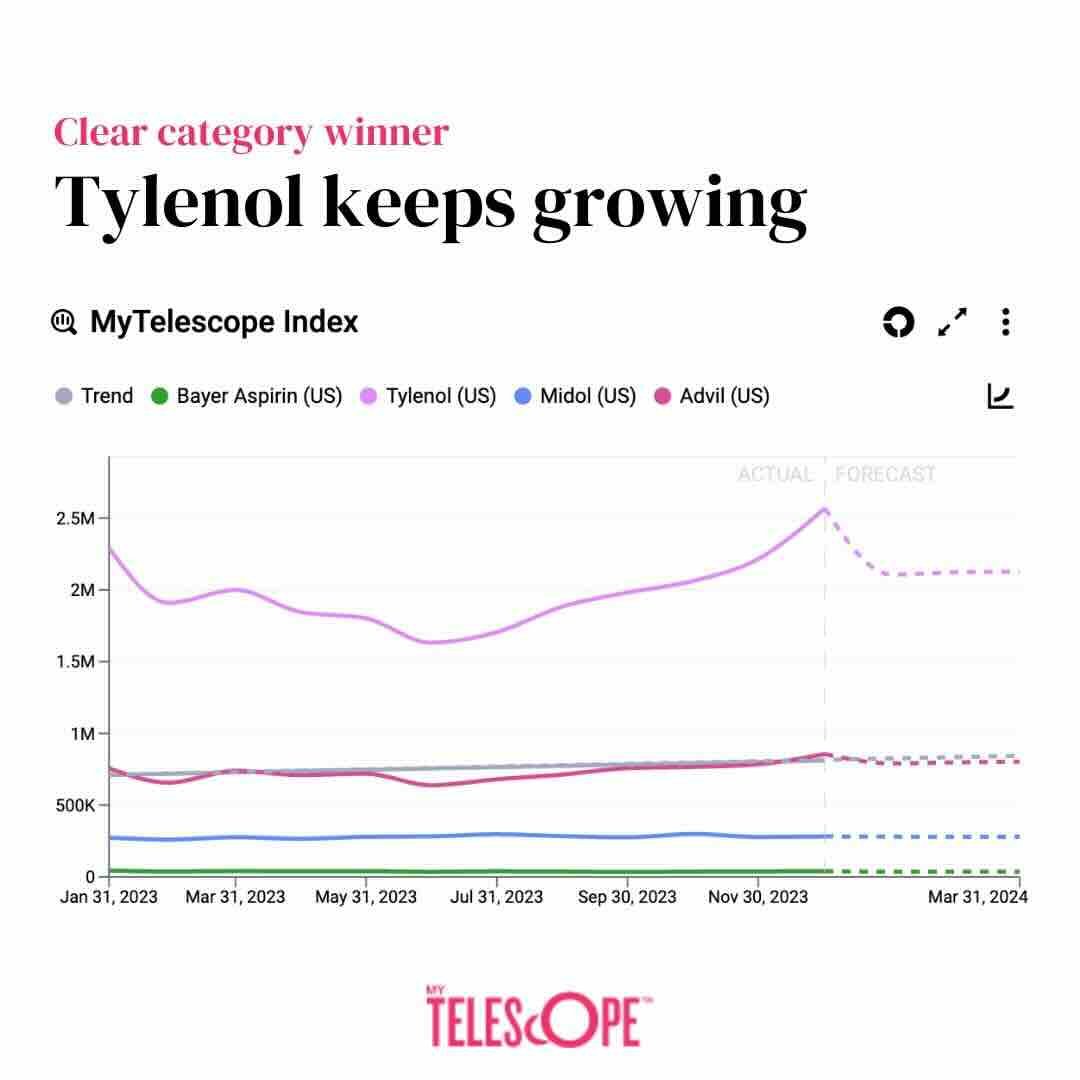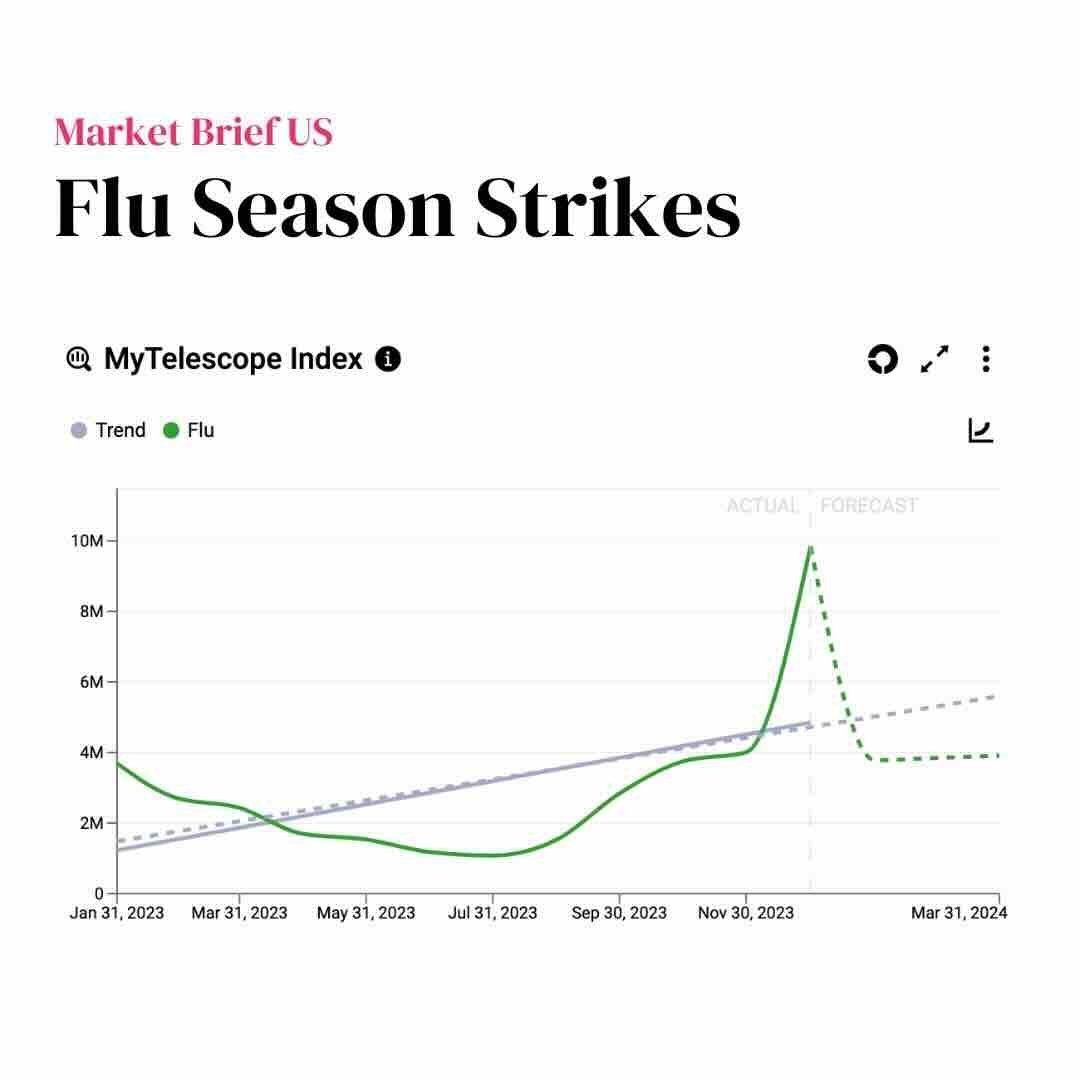Impact of the Flu Season on Consumer Behavior in the United States
Market Briefing:
Date: Stockholm 20240110
Overview: The current flu season in the United States has witnessed a remarkable increase in public interest and consumer behavior changes. Recent data indicates a 217% surge in interest related to the flu. This heightened concern is likely influenced by factors such as the severity of the flu season, media attention, and public health alerts.
Key Trends:
Increased Public Interest in Flu-Related Information:
The 217% increase in flu-related searches and inquiries underscores a significant rise in public awareness and concern.
This trend may correlate with increased media coverage and public health advisories regarding the flu season.
Growth in Demand for Over-the-Counter Remedies:
Tylenol, known for treating symptoms associated with the flu such as fever and aches, has seen steady growth in consumer demand.
This trend reflects Tylenol's effective market positioning and consumer trust in the brand as a reliable remedy for flu symptoms.
Implications for Market Stakeholders:
Healthcare Providers and Retailers:
Should anticipate increased demand for flu-related healthcare products and services.
Need to ensure adequate stock and availability of over-the-counter medications like Tylenol.
Can benefit from educating the public about flu prevention and treatment options.
Marketers and Advertisers:
Opportunity to leverage the increased interest in flu-related products for targeted marketing campaigns.
Should focus on empathetic and informative advertising strategies that address consumer concerns about the flu.
Can collaborate with healthcare experts to provide accurate and helpful information to the public.
Conclusion:
The current flu season has led to significant shifts in consumer behavior in the United States, particularly in the increased demand for flu-related information and over-the-counter remedies like Tylenol.
Stakeholders across healthcare, retail, and marketing sectors should adapt to these changes by ensuring product availability, providing accurate information, and employing sensitive marketing strategies that resonate with consumer concerns.



